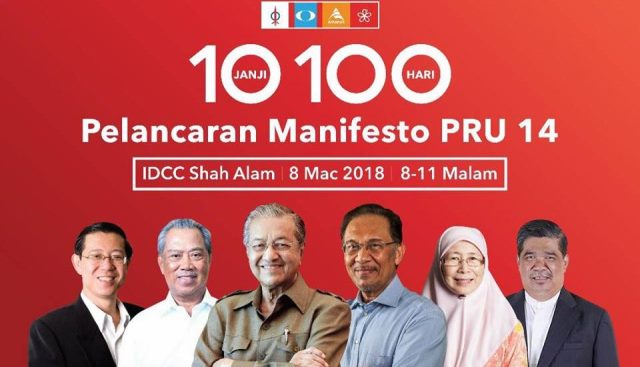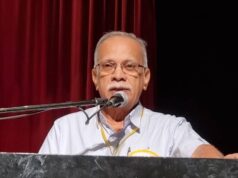

They said it was too short a period to gauge the effectiveness of the government which needed more time to show its mettle and prove its competence.
“Overall, the new government has brought about many changes and its efforts should be appreciated,” said Universiti Utara Malaysia lecturer Associate Prof Dr Ahmad Martadha Mohamed.
Urging the people to be rational when giving their views on the progress made by PH in the past 100 days in fulfilling the promises stated in its election manifesto, he said its inability to deliver all the pledges within the 100-day period did not mean it has lost its credibility.
“The implementation of some of the things stated in the manifesto requires the cooperation and approval of various stakeholders and this is why the rakyat should give them a chance,” said Ahmad Martadha, who is attached to the university’s College of Law, Government and International Studies.


The pledges pertaining to the abolition of the Goods and Services Tax (GST), stabilisation of petrol prices and removal of the names of 433,000 PTPTN loan defaulters from a travel blacklist were among the first to be fulfilled.
The government has also started investigations into 1Malaysia Development Berhad and restructured the top management of Felda, Mara and Lembaga Tabung Haji. It is also carrying out a detailed study of megaprojects awarded to foreign countries, such as the Mass Rapid Transit 3, East Coast Rail Link and Kuala Lumpur-Singapore High-Speed Railway projects.
LACK OF FUNDS NOT AN EXCUSE


“When the previous government was in power for over 60 years, there have been situations when it failed to fulfil many things mentioned in its manifesto,” he said.
Labelling the PH government as ‘uncommitted’ was illogical too, he said, as it has already started working on fulfilling its other important pledges like abolishing the unnecessary debts that have been imposed on Felda settlers, equalising the minimum wage nationally and introducing a healthcare scheme called ‘Skim Peduli Sihat’ with RM500 worth of funding for the B40 group for basic treatments at registered private clinics.


He also said that even though the prime minister and Cabinet ministers often cited the nation’s financial problems as a hindrance to the realisation of its manifesto, they were not using it as an excuse to avoid fulfilling its pledges.
“It (financial problems) is a reality and everyone should acknowledge that the country’s debts exceeding RM1 trillion have made it difficult for the PH leaders to fulfil their manifesto,” he said, adding that the people should understand that when debts increase, the government has to make higher interest payments as well.
“This is why the PH government’s main agenda now is to reduce the debt levels.”
THE PEOPLE HAVE CONFIDENCE IN PH


He said in the PH Cabinet line-up, only Dr Mahathir, Home Minister Tan Sri Muhyiddin Yassin and Foreign Minister Datuk Saifuddin Abdullah were experienced while the others have no experience in governing the nation at the federal level.
“In view of the various constraints they face, it’s important that the people give the PH government a chance to prove their competence as leaders.
“Well, I think the rakyat is confident that all the pledges will eventually be fulfilled,” he said.
He felt that a majority of the rakyat was at this point giving the government sufficient time and space to deliver its promises, hence there was no pressure for them to fulfil all their pledges within the 100-day period.
Moreover, he added, there have been improvements in the quality of life of the people following the zero-rating of the GST on June 1 and stabilisation of petrol prices.
According to Mydin Mohamed Holdings Berhad managing director Datuk Wira Dr Ameer Ali Mydin, sales of consumer items like electronic products and furnishings went up by three to five per cent after the GST was zero-rated.
“Sales of electronic items like television sets, blenders and rice cookers have increased. And, so have sales of clothes and household furnishings. Sales of essential items like rice and sugar have remained the same,” he said.
— BERNAMA










